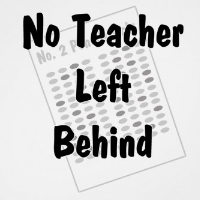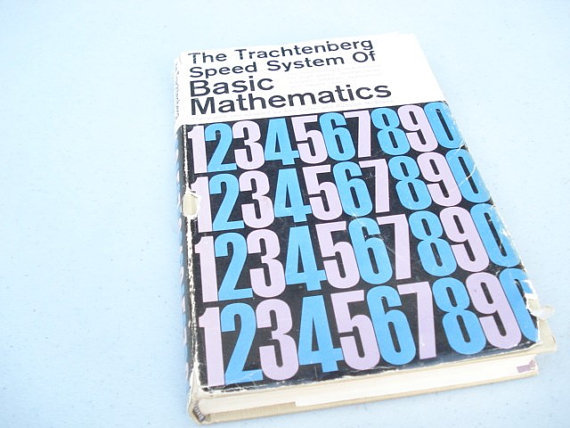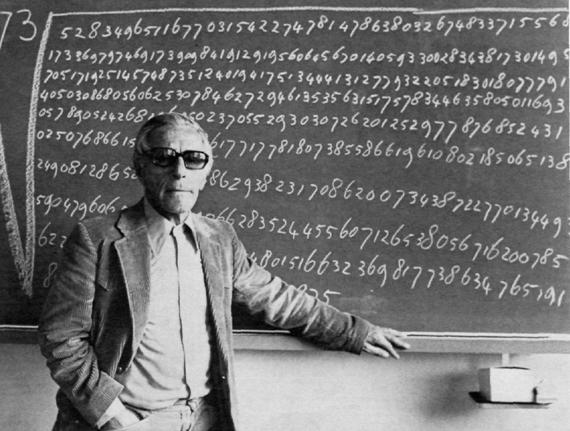Recent headlines scream out: "Teacher Shortages Spur a Nationwide Hiring Scramble (Credentials Optional)." A day later, there's a follow-up in an op-ed piece in the New York Times by Frank Bruni, "Can We Interest you in Teaching?"
Together, they hit a nerve. God, I would like to teach again! Teaching is my passion. I love young people, and I have dedicated a large portion of my life to them. But I am an octogenarian and ...
Age aside, however, even if I had the opportunity, I would not teach again; not because of any lack of desire but because there is simply no place any longer for me or others like me in education.
I find myself instead adrift in memories. The year was 1960; the place, West Haven High School, just outside New Haven Connecticut. I was somewhat new to teaching. I identified myself a "math teacher," a misnomer of sorts, given that my primary background had been in history and political science and I was then currently enrolled in graduate work at Yale in International Relations.
I had become a math teacher by default, accepting a position in a small mill town in the Berkshires, shortly after graduating as a history major from college, in order to escape the tedium of a temporary factory position and to avoid having to make a hard and fast decision about a future career.
I really had no business teaching the subject. I was not born to the calling. As a student, I hated the subject and received my poorest grades in it. My cover was provide by a temporary emergency teaching certificate, testimony to the scarcity of credentialed math and science teachers and the abundance of those in the humanities.
West Haven high at the time was then bulging at the seams and unable to accommodate all the students within the course of a normal school day. It scheduled double sessions. Teachers were to be in school by 7:30 AM. Classes began at 8AM and concluded at Noon. This was followed by a quick lunch, after which the school cleared to make way for the second wave which began at 1 PM and ran until 5 PM.
The principal was a grizzled veteran from WWII who was sealed off in his office bunker, in his very own fortress of solitude and seldom heard from or seen. Much more evident was the assistant principal, an ubiquitous figure who roamed the corridors in search of miscreants, calling out both students and teachers. Suffering from severe arthritis, she made the rounds, clutching her cane much like a swagger stick, lacking only a pith helmet to complete her image of a reigning colonialist. Each night she stood outside the school, peering at the window shades making sure they were evenly drawn, calling out teachers the next day whose judgment was askew.
It was she who gave me my assignment. It was pretty straightforward: Five periods of Algebra I and Geometry I and one of General Math just before lunch. Second shift was Algebra II, all six periods--a total of more than 250 students and a school day that extended for more than eight hours.
After a brief orientation, she passed me on to the head of the department who went to great lengths explaining my responsibilities, primarily preparing these kids for the SATS and college. And, oh yes, there was also the section of general math. It was composed of the kids who were not good enough for Algebra or Plane geometry.
These were the kids who had stumbled and fumbled their way through the system. They took general math, each year adding a few more numerals and decimal points, tedious and mind-numbing exercises. "Keep them busy and you'll be fine," she added. "Don't take it personally, you've been assigned these kids, because you're the rookie in the department and lack the seniority of the other teachers."
They were the "black leather crowd"--white kids from working class backgrounds--"dese" girls heavily made up and "dose" guys, featuring D.A.'s, haircuts, culminating in a pattern similar to the rear end of a duck formed by combing the hair back on the side of the head and holding it with place with hair grease (hence also the general term for these kids as "greasers").
They were the kids caught smoking in the lav. The ones you hated to have in a large study hall at the end of the day, given to pranks dropping books on signal and doling out noogies on unsuspecting classmates. The ones responsible for the sorry state of the lavs, the graffiti on the stall doors and the tossing of rolls of toilet paper into the toilet, causing backups and flooding. Forget about teaching them anything. They were the walking dead of academia.
What to do with them? What to teach them and how? I mulled the situation over and over, getting nowhere fast.
I finally went for a walk, eventually ending up at the local bookstore. There my eyes came to rest on a new volume on the bottom shelf. It was entitle "The Trachtenberg Speed System of Basic Mathematics."
Ask and you shall receive.
I love books, embrace ideas which engage my mind and the off-beat and the peculiar. I also have a particular place in my heart for the outlier, the pioneer, and the gadfly, those who think and live outside the box. I love those who look at things with fresh eyes, see them without prejudice or prejudgment. Jakow Trachtenberg and my general math kids--what a potentially beautiful perfectly odd fit!
Born in Odessa, Russia, Trachtenberg had risen to the position of chief engineer of the Russian navy under the Czar. But with the Revolution, he was forced to flee Russia, finding refuge in Germany. There he made a good life, but with the advent of Hitler, of whom he was an outspoken opponent, he escaped to Vienna. Captured by the Nazis, he was shipped in a cattle car to a concentration camp.
It was there that he developed his system of mathematics. To maintain his sanity and peace of mind amidst the horrors of confinement, he found refuge in a world of his own--one of logic and order. There he used every spare moment developing and refining his simplified system of mathematics, devising shortcuts for everything from multiplication to algebra.
Lacking books, paper, pen, or pencil, he scribbled his theories on whatever scraps of detritus he might find lying about; most of the work, however was done in his head, arranging and re-arranging his beloved numbers, manipulating them in new and creative ways.
He visualized gigantic numbers to be added and he set himself the task of totaling them. And since no one can remember thousands of numbers, he invented a fool-proof method that would make it possible for even a child to add thousands of numbers together without making a mistake without, in fact, ever adding higher than eleven.
Stirring further interest in me was that after his release, Trachtenberg first taught his new and simplified way of doing arithmetic to children who had a history of doing poorly in their school work; those used to failure, many of whom were shy and withdrawn; or boastful and unmanageable.
My first day of general math, most of the 30 plus students stared blankly out at me, Others cradled their head in their arms in mock-nap like fashion on their desk. A few glared defiantly: "Bring it on!" their eyes said, "We've been there before and we've done this shit a hundred times over."
I told them we were going to try something different. I related the story of Jakow Trachtenberg. They sat quietly and listened intently. It was a great story. But they were not yet convinced that math could be interesting, challenging or hold their interest.
Arithmetic is one of the poorest-taught and most hated of subjects in our schools and there has been little or no progress in teaching the subject in this country in the past century, despite a succession of "new maths."
In Trachtenberg, there are no multiplication tables, no division. To learn the system you need only be able to count. The method is based on a series of keys which must be memorized. Once you have learned them, arithmetic becomes delightfully easy because you will be able to "read" your numbers.
The important benefits of the system are greater ease, greater speed, and greater accuracy--all without having to learn or have a reliance on the multiplication tables. I loved how it challenged most of the givens, long standing fundamental assumptions about arithmetic.
It took several sessions to convince the kids. But after things kicked in, things went like wild-fire. They quickly saw the magic in it and took to it like a game. The feeling of accomplishment was accompanied by a poise and assurance, and each level of success built and led to the next. It awakened a new interest in mathematics, instilling them with confidence, and offering a challenge that spurred them on to mastering the subject
They loved junking the basic assumptions and starting from scratch. They were fascinated by the fact that the course was not a series of unconnected tricks, but a complete system.
Trachtenberg took the drudgery out of arithmetic. Most days the kids came to class eager and excited to learning something new, great attitudes and great sense of humor about it. They had new eyes on math and new eyes on themselves.
The class was held just before lunch. The bell for lunch would ring, but rather than jump from their seats and rush for the door, most of the kids would instead stay in their seats and continue with the exercise, often in rapt competition with their fellow students. It came to be my favorite class, the one I most looked forward to.
I graded accordingly. When I gave Frank Paglia an A for the term (which he fully deserved based on his accomplishments in the course) , he rushed up to me after class and gave me a big hug. "Holy shit...I never got a fucking A in my whole life!" he screamed out. "You deserved it," I told him as he ran from the room.
The word soon got out, and the head of the Department called me in. She was irate. "How dare you give Frank an A," she fumed. This was general math and A's were reserved for real students studying real subjects such as Algebra and Geometry. I argued how this was a real subject and how Frank deserved an A for his work in it. She remained unconvinced, however, arguing how I did not understand how the academic world worked, and if I did not learn quickly or was unwilling to accept it, there was no place for me in it.
We all move on. When I left West Haven High, I stopped by the principal's office as a courtesy. The principal rose from his desk, firmly grasped my hand, patted me on the shoulder and said, "You were one of the best teachers in the school. We will miss you." "I don't mean to be disrespectful, I asked, but how did you arrive at that conclusion? I don't remember you ever having been in my classroom." "That's easy, he said. You never sent anyone to the office."
A few years later, I was in a local bank to make a withdrawal, and lo and behold if one of the tellers standing before me was a former student from that same class. "Mr. Paros!" he blurted out excitedly. Would you believe where I am?" I smiled and told him how cool it was. "I love it," said he. Great course you taught!" The line behind me was growing longer and slightly edgy with the wait. The former student handed me some money. "You count it, said he, you're the teacher."
In reference to today's teacher shortage, Carlos Ayala, dean of the school of education at Sonoma State University, noted that, "There are not enough people who will look at teacher education or being a teacher as a job that they want to pursue,"
Frank Bruni's wish list for adding more allure to the profession included better pay, career growth, and greater prestige, including higher licensing standards. Mentioned also was autonomy.
Autonomy is really at the nub of it all. Teaching is an art, and we need to respect the artist and give him full reign in his expression. What repels many of our best and most creative prospective educators is the fundamental distrust of the teacher as a free-wheeling artist, opting instead for the passive employee who will digest and regurgitate pre-cooked curricula, worship at the altar of standardized tests, and uncritically accept quantifiably verifiable indices of success as the gold standard for evaluating student growth as well as their own worth. Why would any free-wheeling educational artist search out work under such conditions? Only the drones need apply. Creative and independent thinkers should look elsewhere.
I eventually became a pretty good math teacher, but not because I knew anything about math. Math-challenged Larry had to reinvent the subject matter, to make it come to life for him so that it in turn might resonate for his students,. He taught math as he would have like it to have been taught to him. And it worked.
There may no longer be any place for arithmetic, even speed arithmetic in the educational process. Calculators, GPS, and Siri have rendered such skills obsolete. I would have liked, however, to believe that there might still be a place in today's educational world for me or a variation of Jackow Trachtenberg...but apparently there is not.
So for now, I'll just have to pass on any job offers.
Larry Paros is a former high-school math and social-studies teacher. He was at the forefront of educational reform in the 1960s and '70s, during which time he directed a unique project for talented underprivileged students at Yale and created and directed two urban experimental schools, cited by the U.S. Office of Education as "exemplary" and later replicated at more than 125 sites nationwide.



